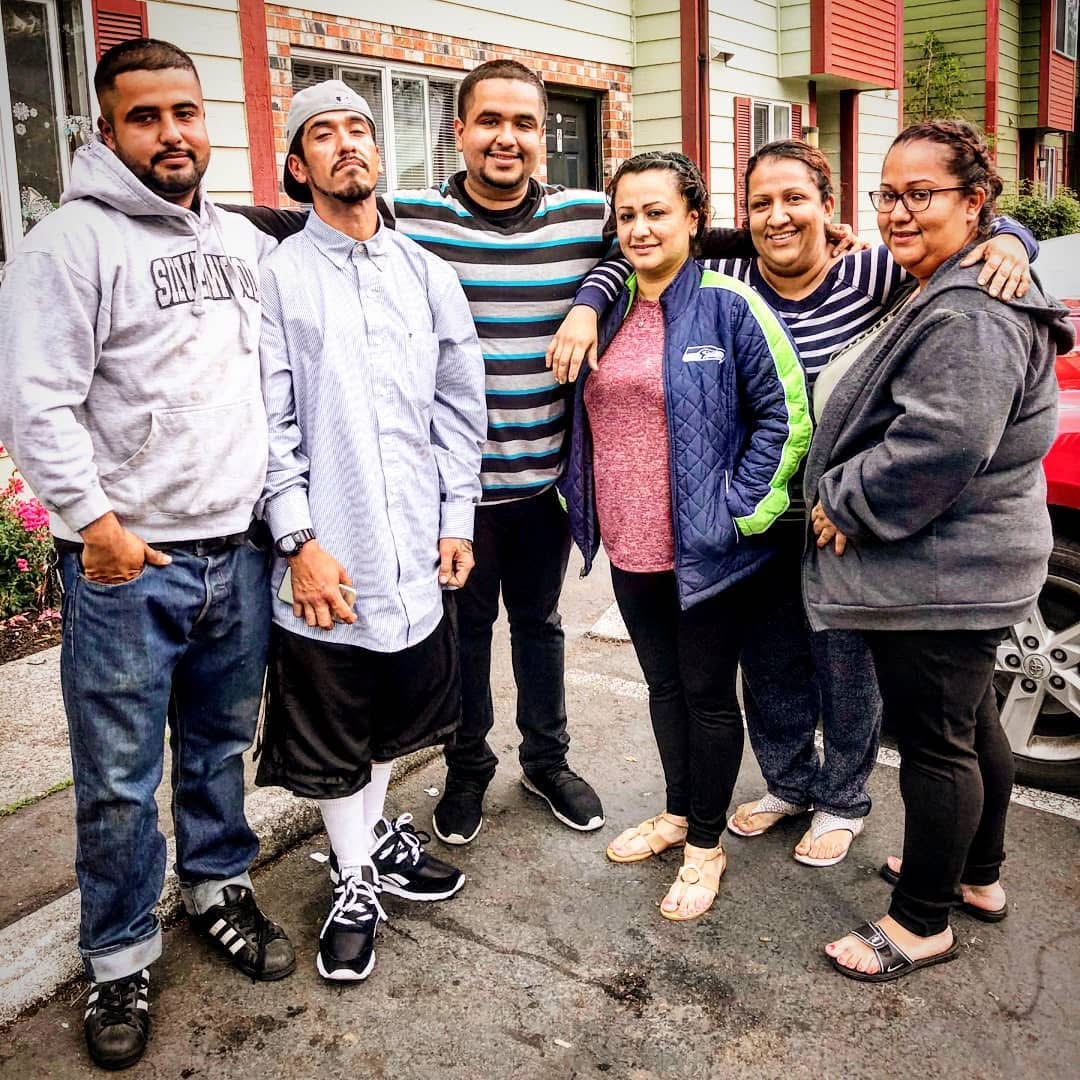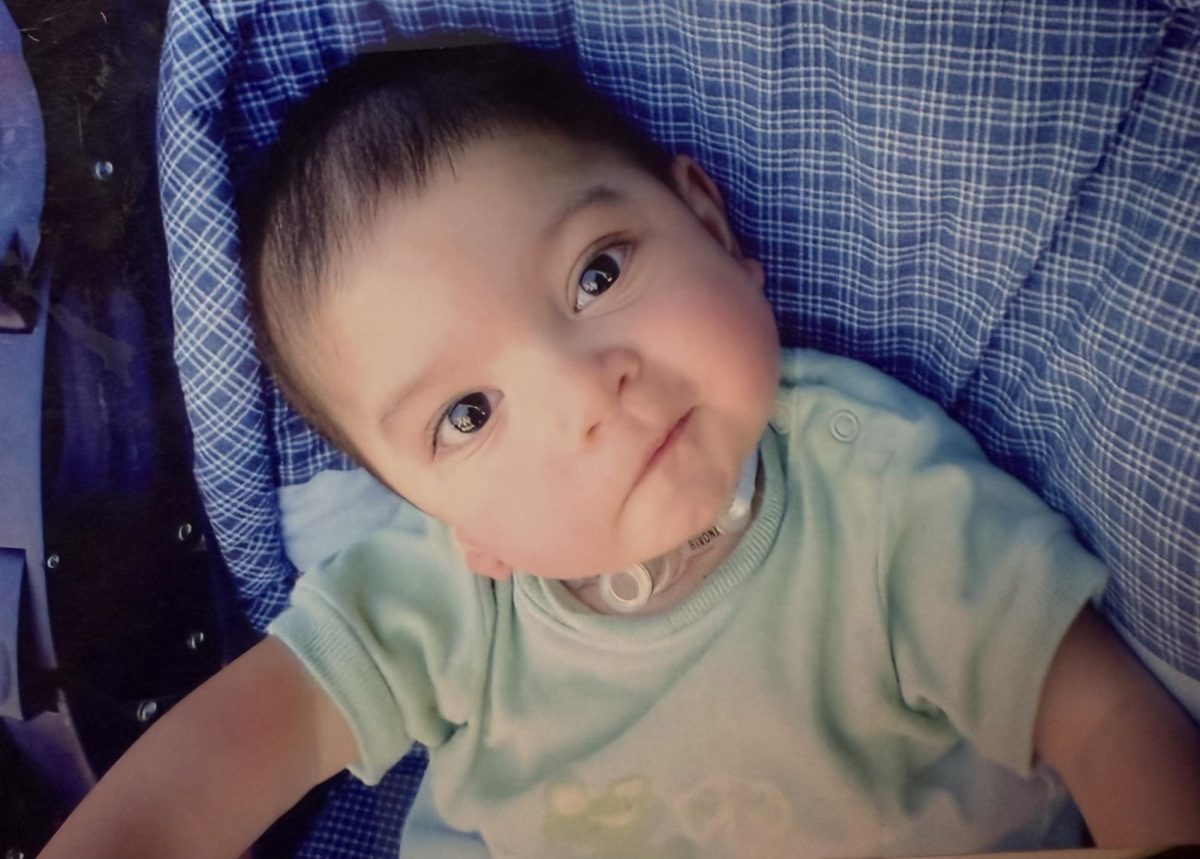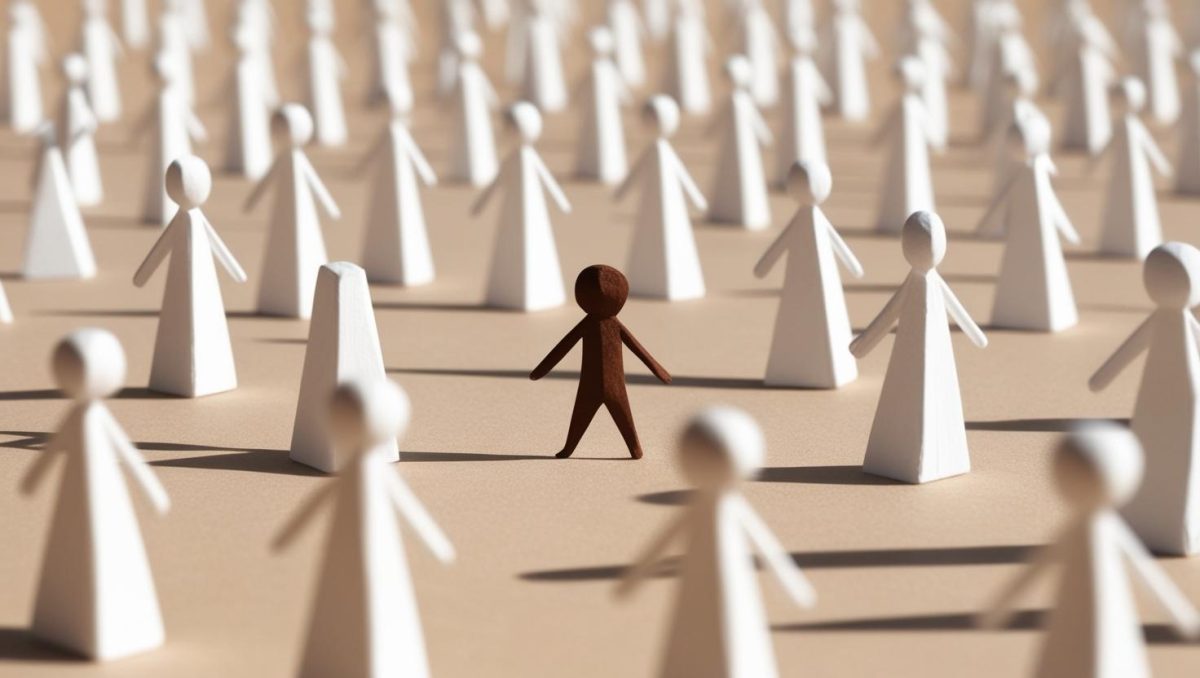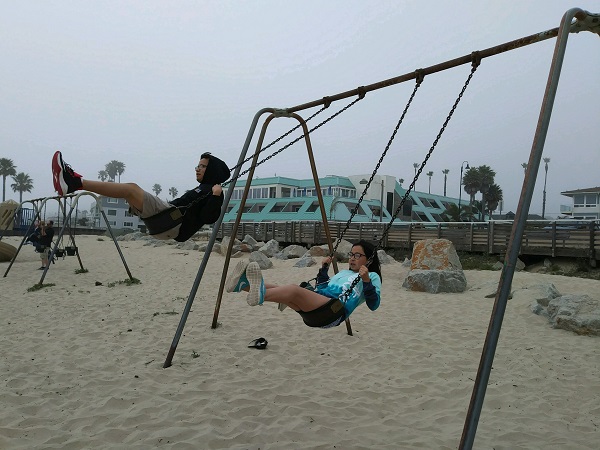My mother was the heart of our family. She provided the love, care and strength that held us together. She provided positivity to us no matter the circumstances. No matter what we did, she saw the light in us and knew we could do better, be better.
No one needed her more than my brother. He didn’t have the best relationship with my father, but he always knew that he could lean on my mother. She was there for him no matter the circumstances.
Losing her changed everything for our family, but especially for my brother.
His guardian angel was gone. Life would become so difficult for him, that he used drugs as an escape and almost jeopardized his life.
Illicit drug use affects millions of families like mine. Thankfully, overdose deaths in the United States dropped by 10% as of April 2024, according to The Guardian. Experts say the decrease is due to several factors including a wider spread use of and access to naloxone, a drug that helps reverse opioid-related overdoses. But more than 100,000 people still died from overdose deaths.
Our mother’s death
My mother was my inspiration, especially when it came to my grades. I loved showing her my grades because it would always make her smile.
In October 2013, when I was in my junior year of high school, my mother passed away from liver cancer.
Losing her hit me hard. It felt like my motivation was gone. I stopped caring about grades. As my schoolwork suffered, my teachers took notice and eventually, I realized that I was putting myself at risk of not graduating.
I didn’t want to do that to my family. I thought about my mom. What would she think if she knew what had happened? That’s when I decided to turn things around by picking up my grades. When I learned I would, in fact, graduate from high school, my first thought was how proud my mother would be.
Like me, my siblings overcame many of their own hardships around then by focusing on their families and careers — to make my mother proud of them from heaven.
My brother Antonio was different.
The passing of our mother hit him the hardest because that’s when he lost his guardian angel.
My brother’s addiction takes root
Growing up, my brother had a terrible relationship with my father, prompting him to leave home and live a crazy lifestyle. He would have encounters with the law but no matter what happened, my mother was there for him.
“Every time I had my hearings, I would look over, and she was always by my side,” Antonio said.
Years passed and things took a turn for the worse for my brother. My brother felt so empty inside. By then, I had returned from Seattle and moved in with my sister in Los Angeles.
My brother completely stopped caring about his job and stayed home most of the time. His actions would concern us as he would isolate himself and hang out with the wrong people. We made sure that we checked up on him to see if he was doing OK. My brother said he was fine, but it was clear to me he wasn’t. He was letting the demon eat away at him.
During one of our visits to his apartment, we noticed his apartment was filthy, and random people were sleeping on his bed.
“How could he have allowed himself to become so defeated in life?” I thought, looking at my brother, whom I had once admired so much.
My sister sprung into action right away.
“Get the heck out of this apartment now!” my sister, Norma, recalled telling the strangers.
“Who the hell are you to be telling us to leave?” one of them yelled back.
“I’m Antonio’s sister here to check on him. Who are you?” she retorted.
The arguing got intense. I walked up to the strangers to help de-escalate the situation.
Antonio finally chimed in, telling the strangers to shut up and leave the apartment. They did.
That’s when Norma and I started talking with him, hoping we could get through to him. But it seemed like Antonio was just sitting there, not listening to us or even considering making a change. It felt like he was just waiting for us to leave.
Little did we know at the time, he was battling a drug addiction.
His addiction led him to spiral to the point that he ultimately lost his apartment and was living on the streets.
It was sad to see but we continued checking on him every chance we got.
The days and months passed and it seemed to do no good.
“Oh my gosh, ese Tono no se le que pensa. We needed to think of a strategy to get him out of this dark hole,” my sister Norma finally said.
The Seattle days
We wondered if a change of scenery could help. We worried that if he stayed in California any longer, he would end up dead in the streets.
So we reached out to my sister, Diana, who lived in Seattle, Washington, to see if she could take my brother with her and help him turn his life around. She agreed to give it a try.
Antonio wasn’t thrilled. He went along with it, knowing we cared and were just trying to help.
Diana helped him get a new job and apartment. My brother seemed to be heading in the right direction. He loved earning his own money and making us proud.
He got along with his co-workers because he was a hard worker and a nice person.
But after an initial three months of improvements, Antonio began to hang out with horrible people who re-ignited his addiction.
History repeated itself, things getting even worse. He stopped working again and began asking his co-workers for money to feed his addiction.
Diana called us to let us know that my brother was living on the streets again — even more concerning in Seattle is concerning because of the freezing temperatures there.
Diana didn’t know what to do. She tried to get him back home but had little help from her husband, Marcos, who “kept telling me to leave him alone because he doesn’t want your help. He doesn’t want to get better because he dug himself into a deep hole.”
We supported her, urging her to continue checking on Antonio and trying to bring him home. She did but it was too late: Like a monster, his addiction took control of his life. He sold drugs on the street and committed crimes to get money to pay for drugs. He kept getting worse as time passed, and at some point, my sister, Diana, had just given up.
The complaining she got from her husband combined with the inability to make a difference was too much for her. She told us that she’s going to send Antonio back to California.
Antonio pleaded with her, saying he didn’t want to leave. Before she could change her mind, she bought a one-way ticket back to California for him.
Moving back to Cali
My brother was unrecognizable when we picked him up from the airport.
He alternated staying with Norma in Hacienda Heights in a room she provided for him and at our home with my sister Veronica and me. But nothing seemed to help.
There were times when he did better — when he couldn’t find the drugs he needed — and we’d watch him struggle in his sleep, twitching, fighting the addiction. It was sad for us to see him suffering. But we continued trying to keep him away from drugs as much as we could and thought we were successful for a time. But one day, when visiting him in Hacienda Heights, we discovered a lot of foil paper on the floor. We realized he was using again.
Like Diana’s husband, Norma’s would say to leave him alone; he doesn’t want the help. Arguments broke out between Norma, Antonio, and her kids.
Norma had no option but to send him to us.
Providing the space for my brother didn’t help him. His addiction seemed to get worse. Antonio would plead with us to give him $20 or he’d sell the aluminum cans we collected so that he could continue his addiction.
Foil paper was spotted again. He pleaded with us to let him borrow money.
“At the time, I had to put him on check by telling him to have some respect and not to bring his crap into the house,” my sister Veronica recalled.
Trying something new
In the fall of 2023, I took an interviewing class and one of my sources, Amber Salazar, spoke about the dangers of Fentanyl poisoning.
“What do you recommend to somebody who has a relative who has an addiction?” I asked.
“The best advice I can give you is to talk to that person and ask them how their day was going. The point of that is to let the addict know that you are concerned with his well-being,” she said.
When I did that with my brother, it was the start of a change in our relationship. One day Antonio pleaded with me to give him cash so that he could get the high he needed. I went to withdraw $20, but before I did, I said I wanted to have a talk with him.
“Brother, I want to tell you that I love you, and I hate seeing you in your current condition. Antonio, I don’t want to lose you, brother; You’re my older brother, and I want you to be there for my graduation,” I told him.
Antonio was silent, lost in his thoughts. The conversation made him realize he needed to turn his life around.
“I’m letting our mother down. It’s time to end this addiction,” Antonio recalled thinking as he saw my eyes well up with tears.
Eventually, he looked at me and said: “OK, I will try to make the change for you little brother to watch you graduate. I just need to leave the house and keep myself distracted.”
He grabbed his bike and headed off to the streets.
“What will happen next with Antonio?” I wondered, watching him bike away.
The next morning, I was heading to work when I heard my brother shout out my name.
I walked over and he showed me the $20 bill that I had given him. He still had it.
Relieved and elated, I told Antonio how proud I was of him and suggested he use the money for food or snacks.
It was a difficult journey for my brother because he knew he had to battle hard. Antonio kept a calendar in his room to cross out each day that he remained sober.
“The journey was difficult because my body wanted me to get high on Percocet, but I had to tell myself to fight. I was not going to let this addiction beat me again.” said Antonio.
My brother kept making progress as the year progressed and managed to fight against the withdrawals.
The interview
By that time, my semester in school was coming to a close and our professor said the three best stories may be aired on the “Cal State LA Community News Hour” show on KPFK.
I knew immediately who I wanted to interview: Antonio.
But I was nervous because something personal like my brother’s addiction was not easy to talk about.
As the interview progressed, I held back my emotions.
My brother shared the turning point for him in the interview:
“Watching you cry, brother, made me realize” a change was needed, he said, “and I did it just for you.”
My professor could see I struggled to ask certain questions. Hearing my brother talking about his battle with his addiction made me so emotional but I knew that I had to be strong.
When I was done, Prof. Tony Cox discussed some other questions that I could’ve asked my brother but also lauded me for being able to discuss a personal issue that most families don’t share publicly.
Antonio and I walked back to the car and he thanked me for picking him for the interview.
“Doing this interview with you, brother, made me realize that I have made so much progress,” Antonio said.
In that moment, I felt so proud of my brother’s accomplishments — especially kicking an addition, something few people can achieve.
Soon after, decision time had come. Prof. Cox picked the best interviews.
His first two pick didn’t surprise me as they were done by the University Times’ managing editor, Jackson Tammariello, and a senior multimedia reporter, Adriana Davila.
His final pick came as a shock: My interview with Antonio.
Everyone in the classroom cheered. Once class was over, I rushed home to tell my brother that we would be on the radio.
He laughed as I told him the news and he congratulated me.
Once the show was made available on SoundCloud, I played it for my family. Mixed emotions were in the air as my family listened to my brother describing his struggles. I knew Antonio felt proud of where he was at, and I couldn’t have been more proud of him.
Antonio has turned his life around completely. He began working again and has continued to make progress. As of right now, my brother has remained sober for a year and counting, looking stronger than ever.
In May, my brother will be in the stands cheering me on as I walk the stage to receive my college degree. I couldn’t be more thankful.













